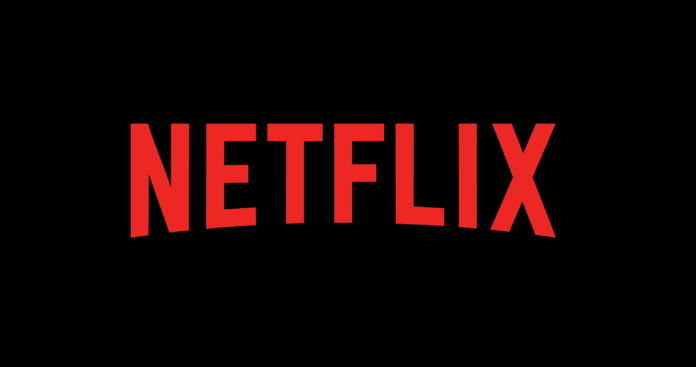Popular Nigerian comedian and actor, AY Makun, has weighed in on the ongoing debate surrounding Netflix’s alleged pullback from funding Nigerian original movies. In a recent interview, AY clarified the streaming giant’s position, shedding light on low subscription rates, financial hurdles, and the need for strategic adjustments to sustain operations in Nigeria’s dynamic market.
Background: The Netflix-Nigeria Debate
The controversy began when celebrated filmmaker Kunle Afolayan claimed that Netflix had ceased commissioning Nigerian original films. This sparked widespread concern about the future of Netflix’s engagement with Nollywood, Africa’s largest and most influential film industry. Given Netflix’s pivotal role in promoting Nigerian cinema globally, the claim raised alarms about shrinking opportunities for filmmakers and the possible decline of Nigerian representation on international streaming platforms.
However, AY Makun, during an interview on Nollywood on Radio, offered a different perspective. He refuted the rumors of Netflix exiting Nigeria, providing insider insights into the company’s operational challenges and strategy shift.
The Root of Netflix’s Challenges in Nigeria
AY pointed to two major factors contributing to Netflix’s struggles in Nigeria:
1. Low Subscription Rates
Despite Nigeria’s massive population of over 200 million people, AY revealed that the country has an estimated 3,000 active Netflix subscribers. This statistic highlights a significant underperformance compared to the platform’s potential reach within the Nigerian market.
He explained:
“With over 200 million people, having just about 3,000 subscriptions is a major concern. This gap is not because Nigerians are not watching Netflix, but because many are doing so through shared accounts.”
2. Widespread Subscription Sharing
AY identified subscription sharing as a critical factor undermining Netflix’s revenue generation in Nigeria. He noted that Nigerians often share a single account among multiple users, significantly reducing the streaming service’s potential earnings.
“A single subscription being shared by several people is part of the problem. This isn’t about the filmmakers—it’s about us as Nigerians. The leakage needs to be corrected.”
Netflix’s Commitment to Nigerian Content
Contrary to claims that Netflix is pulling out of Nigeria, AY emphasized that the platform remains committed to the Nigerian market. He disclosed that during a recent meeting with Netflix representatives, discussions centered on upcoming Nigerian projects and strategies to optimize performance.
“It was never mentioned to me that Netflix is opting out of the Nigerian market. In fact, we discussed my next project and how they could be involved.”
According to AY, Netflix’s financial investments in the Nigerian market have outpaced its revenue. As a result, the company is merely restructuring its business model to ensure long-term sustainability.
“If you’re running a business in a region where you’re spending more than you’re earning, you would naturally re-strategize. That’s what Netflix is doing.”
Why Netflix’s Struggles Matter for Nollywood
Netflix’s arrival in Nigeria marked a transformative moment for Nollywood. It opened new opportunities for:
- Global Visibility: Nigerian films reached international audiences, positioning Nollywood as a major player in global cinema.
- Funding and Quality Improvements: Original productions funded by Netflix raised the standard of Nigerian movies in terms of storytelling, cinematography, and production quality.
- Filmmaker Empowerment: Independent filmmakers gained access to global platforms, enabling diverse narratives to thrive.
If Netflix were to scale back its involvement in Nigeria, it could pose challenges for Nollywood in terms of financing and global recognition. However, AY’s clarifications suggest that Netflix’s approach is focused on sustainability rather than withdrawal.
Addressing the Challenges: AY’s Call to Action
To ensure Netflix’s continued investment and success in Nigeria, AY urged Nigerians to tackle the issue of subscription sharing. He emphasized that creating an environment conducive to revenue growth is essential for platforms like Netflix to thrive.
“This is not just a Netflix issue. It’s about us as Nigerians supporting a business model that works. If we want more investment in Nollywood, we need to address this problem.”
Solutions for the Nigerian Streaming Market
To address Netflix’s challenges and unlock the Nigerian market’s full potential, industry experts propose the following solutions:
1. Affordable Subscription Plans
Netflix could introduce localized pricing models tailored to the Nigerian economy. Lower subscription costs would encourage more individuals to purchase accounts instead of sharing them.
2. Enhanced Payment Options
Expanding payment methods, such as mobile money and local payment gateways, could improve accessibility for a wider audience.
3. Education on Digital Streaming
Public awareness campaigns could educate Nigerians on the value of supporting streaming platforms to foster industry growth.
4. Crackdown on Account Sharing
Netflix could implement stricter measures to limit subscription sharing while providing affordable family or group plans.
Conclusion: The Future of Netflix in Nigeria
While the debate surrounding Netflix’s involvement in Nigeria continues, AY Makun’s insights offer clarity on the company’s strategy. Rather than exiting the market, Netflix is recalibrating its approach to ensure its investments yield sustainable results.
For Nollywood, the message is clear: fostering a supportive ecosystem where streaming platforms can thrive is crucial for the industry’s future. By addressing subscription challenges and creating enabling conditions, Nigerians can help ensure that platforms like Netflix remain invested in telling Nigerian stories to the world.

